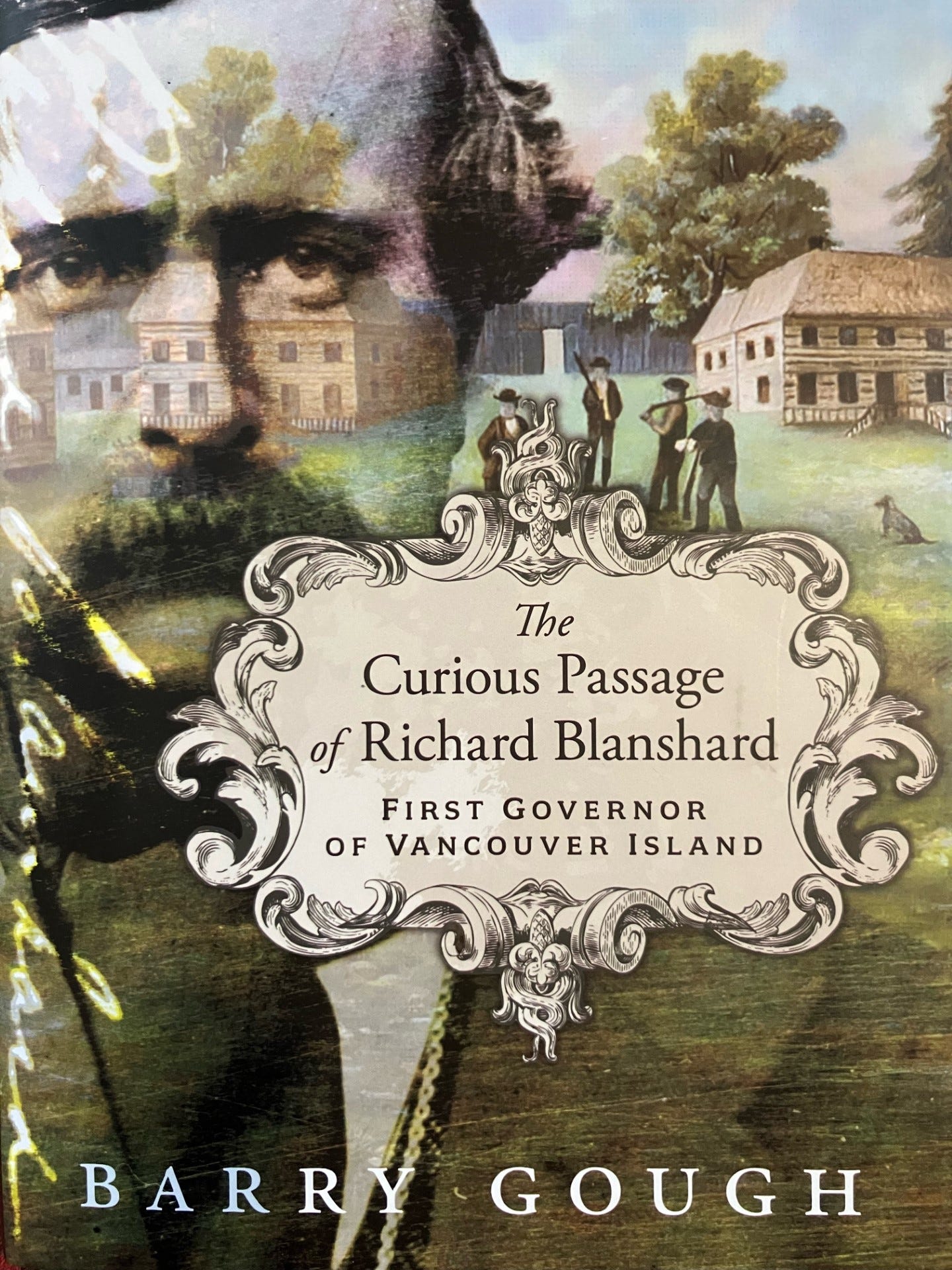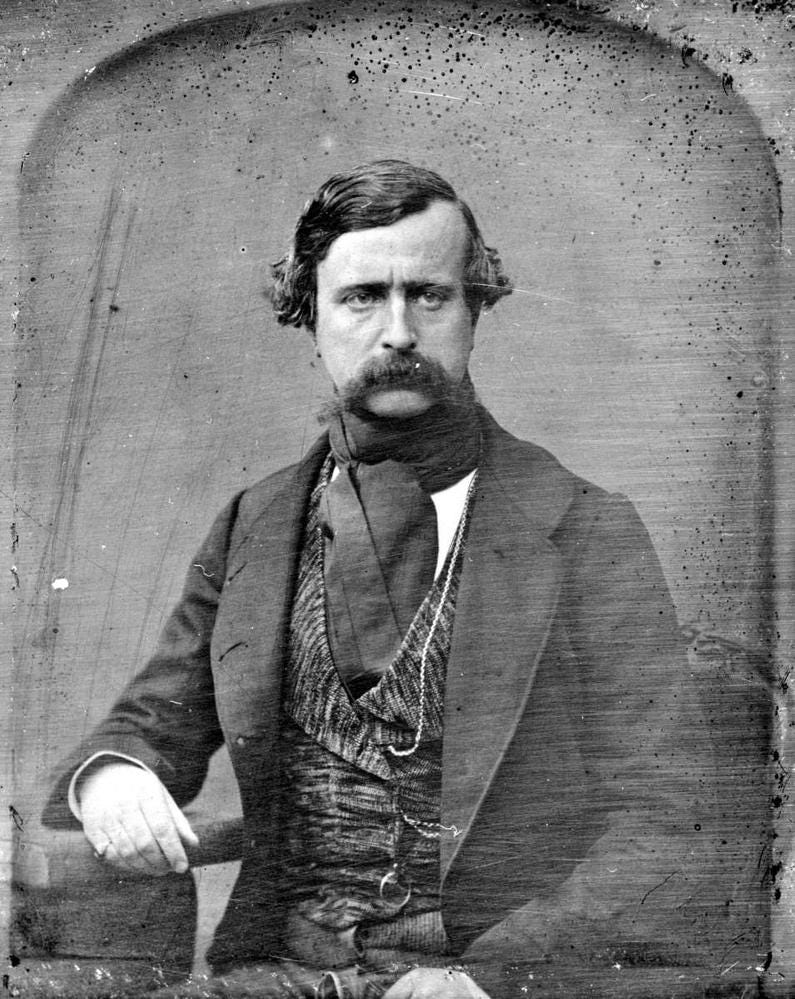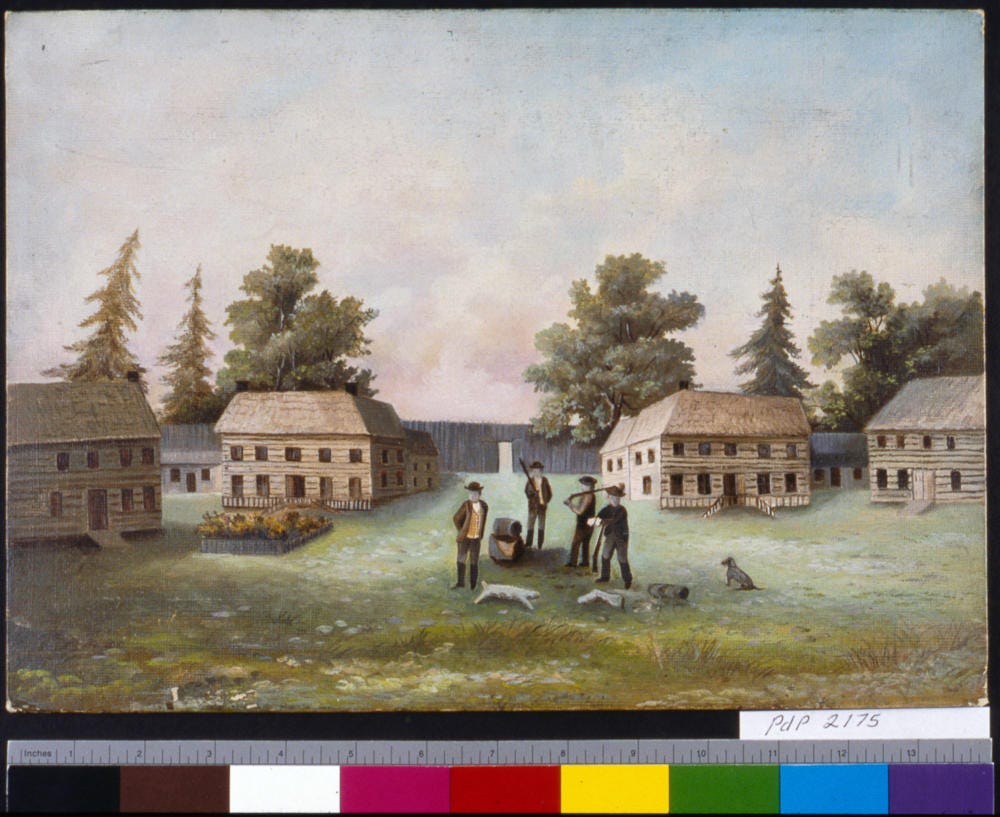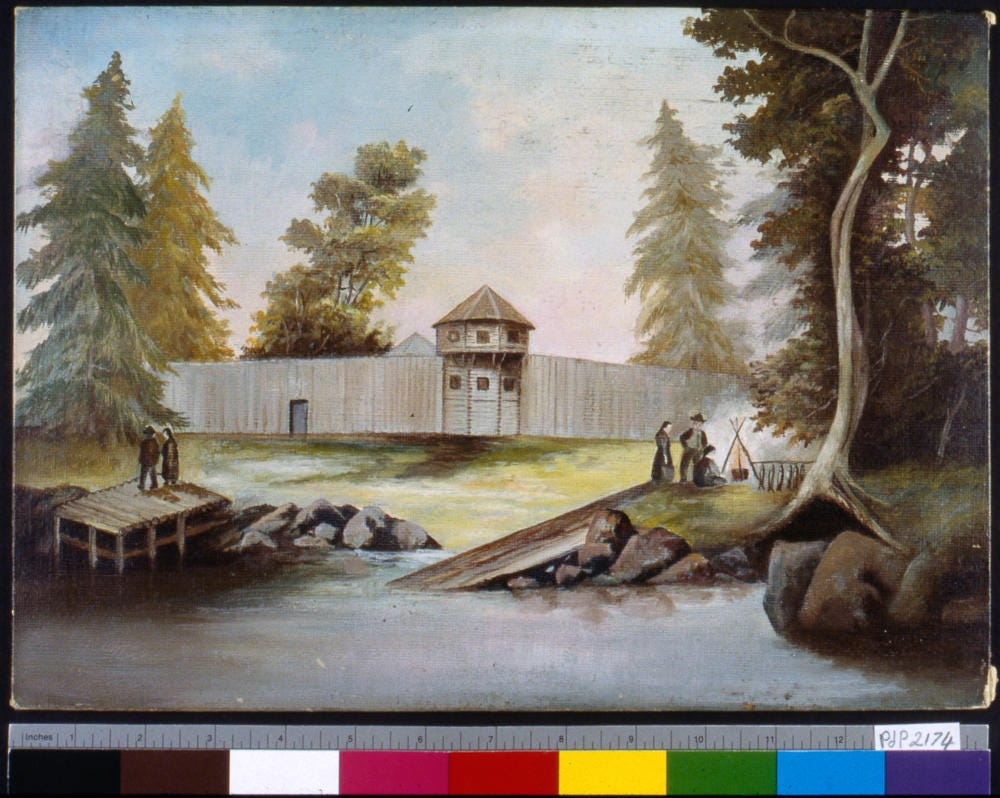Barry Gough recounts early corporate grip on the Island in latest book, The Curious Passage of Richard Blanshard
The Colony of Vancouver Island's first governor only spent a year and a half here. And his story has been overlooked for more impactful figures like James Douglas...until now.

I spoke with Barry Gough about his new book the morning after finishing the 300-or-so-page hardcover. While the book spans only a blink of Vancouver Island history, it leaves you with much to dwell on while you panic to think of questions to ask its author.
My challenge for our interview rested on which questions to pull from a roster of potential angles: Blanshard’s not-so-humble origins; the unfortunate circumstances of his short, three-year governorship; the impact he left on the Island besides a Victoria street name (spoiler: not much of one, it turns out); or whether he was one of these old-timey white dudes we’d sooner forget anyways.
I didn’t ask an in-depth question. Instead, I zoomed out and asked Gough why he chose to write about the now largely forgotten figure. The conversation led down a path to something still topical in Victoria today—real estate. (And guess what, the prospects of home ownership were just as depressing for the average person then too.)
For anyone interested in early settler Vancouver Island history, this book is indispensable. You can purchase at your locally owned bookstore or at the publisher’s website here. (I don’t get paid for recommending books, just sleep better at night.)
Enjoy!
Dave: Why did you choose to write a book about Blanshard?
Barry: Blanshard was always a ghostly figure, haunting the margins of Vancouver Island's early history. And I've always thought that so much can be told by secondary figures or even tertiary figures that dance around the edges of any great story.

It's all very well for students of history to continue to write another biography of James Douglas or in the history of the American West to do another book on Lewis and Clark, just as an example. But sometimes these secondary figures are more exciting to write about because they're new and they can also tell us something about the primary characters. And I think the revelatory aspect of this book is it shows how clearly James Douglas was into the Hudson Bay Company project at the expense of the colonization.
And I've demonstrated beyond a shadow of doubt the duplicity of the Hudson's Bay Company in accepting the Charter of Grant, which was designed to populate Vancouver Island with British colonists. But James Douglas’s policies and that of his bosses, more particularly George Simpson, The Little Emperor, and his boss, Sir John Pelly, who was the head of the corporation in London, were to look after stockholders’ interests. And those stockholders’ interests were to keep selling furs and engage in the mercantile trades here—selling lumber, selling fish, selling wheat, engaging in the primary trades that the Hudson’s Bay Company had developed so much.
Now the Hudson’s Bay Company was under change at this time, as I explain. They were, first of all, of course, defending their fur realm of the north, which was New Caledonia on the mainland. But they were also engaging in this diversification of their trade. They were getting into shipping, they were getting into selling wheat to the Russians, trading and exchanging gold to California, servicing whaling ships that needed provisions, etc. So, this is a marvelous company in terms of its adaptability, but the least of their interests, as I've disclosed, was colonization and settling of Britons here.
So that's a very good first question to start with. Why Blanshard? Well, he's the secondary figure. We can see the unfolding world through his eyes. We can see all the difficulties of the times. We get an indication of how the Americans were closing the border, seizing British ships, fining British traders, and upsetting attempts to take timber from the American side of the border. And from his point of view, we see the developments that occur at Fort Rupert [miners’ strikes and the Nahwitti War.] We see that Douglas may not have chosen the best place for the mercantile activities to develop on Vancouver Island.

Dave: At Fort Victoria?
Barry: Yes, at Fort Victoria in Camosun Harbor. Blanshard would have preferred Esquimalt, which is a far better harbour. We also see how, because the Hudson’s Bay Company dominates all the metropolitan land of Victoria, which is now the city of Victoria, James Douglas steers all the private, independent settlers to the margins.
He steers them to Sooke, where the Captain Grant sets up. He steers them to Metchosin, where James Cooper and Thomas Blinkhorn have properties. And, as one of my readers so astutely pointed out, you can see now how these settlements in and around Victoria are not at the center of gravity, so to speak. Esquimalt, Metchosin, Sooke, these are the places where the other minor communities have developed, and they are a direct result of the policies of Douglas to steer away the independent settlers and meanwhile to develop the lands in and around Fort Victoria.
Victoria becomes the first retirement center of the old Hudson’s Bay Company traders. John Tod comes first. William Henry McNeill settles in. Roderick Finlayson, William Fraser Tolmie, John Work. They all end up with these massive properties as of retirement, at least 100 acres, sometimes 400 acres. And when the Hudson's Bay Company relinquishes all these lands to these people and it goes through the privatization process, these are the people who are able to profit mightily from their own investments in the land.
So, I wouldn't say there's skullduggery here. I think it's the natural way of real estate law. That if you acquire a lot of land, you develop it. Then then you subdivide and sell off portions of it to your own benefit.
Dave: These guys made sure they were in the right place at the right time and able to take advantage of their situation as landowners?
Barry: Right from the beginning. That's absolutely correct. They were they were able to lay down their markers and even the certain jurisdictions went to these people. So, it's a fascinating real estate history indeed.
Dave: Thanks, Barry!
Barry Gough is one of Canada’s premier historians and biographers. His insightful research and lucid writing spanning five decades have earned him high distinction. Among his awards are the Canadian Historical Association’s Clio Prize, the Maritime Foundation’s Mountbatten Award, the Washington Historical Society’s Robert Gray Medal, the Alcala Galiano Medal and the Keith Matthews Award. In 2022, he was awarded the Lieutenant Governor’s Medal for Historical Writing for Possessing Meares Island. He is a Fellow of the Society for the History of Discoveries. He lives in Victoria, BC.
About The Curious Passage of Richard Blanshard: Gough brings a defining era of Pacific Northwest history into focus in this biography of Richard Blanshard, the first governor of Vancouver Island—illuminating with intriguing detail the genesis and early days of Canada’s westernmost province.
Early one wintry day in March 1850, after seven weary weeks out of sight of land, a well-dressed Londoner, a bachelor aged thirty-two, stood at the ship’s rail taking in the immensity of the unfolding scene. From Her Britannic Majesty’s paddlewheel sloop-of-war Driver, steadily thumping forth on Imperial purpose, all that Richard Blanshard could make out to port, in reflected purple light upon the northern side, was a forested, rock-clad island rising to considerable height. Vancouver’s Island they called it in those far-off days. This was his destination.
Richard Blanshard was governor of the young colony for three short, unhappy years—only one and a half of which were spent in the colony itself. From the very beginning he was at odds with the vastly influential Hudson’s Bay Company, run by its Chief Factor James Douglas, who succeeded Blanshard as governor of the colony of Vancouver Island and later became the first governor of the colony of British Columbia. While James Douglas is remembered, for better or worse, as a founding father of British Columbia, Richard Blanshard’s name is now largely forgotten, despite his vitally important role in warning London of American cross-border aggressions, including a planned takeover of Haida Gwaii. However, his failures highlight the fascinating struggles of the time—the supreme influence of commerce, the disparity between expectations and reality, and the bewildering collision of European and Pacific Northwest culture.



Really enjoyed this interview with Barry who I endlessly admire - I love his writing and thorough understanding of our history. His insights into the HBC are so important, since as he says, they were a commercial venture, not colonizers. His book Fortune's a River is a favourite. He's been prolific! Second book within a couple of years! He has been a great help to me, and encourages me to keep going with our magnificent history! Excellent topic, Dave.